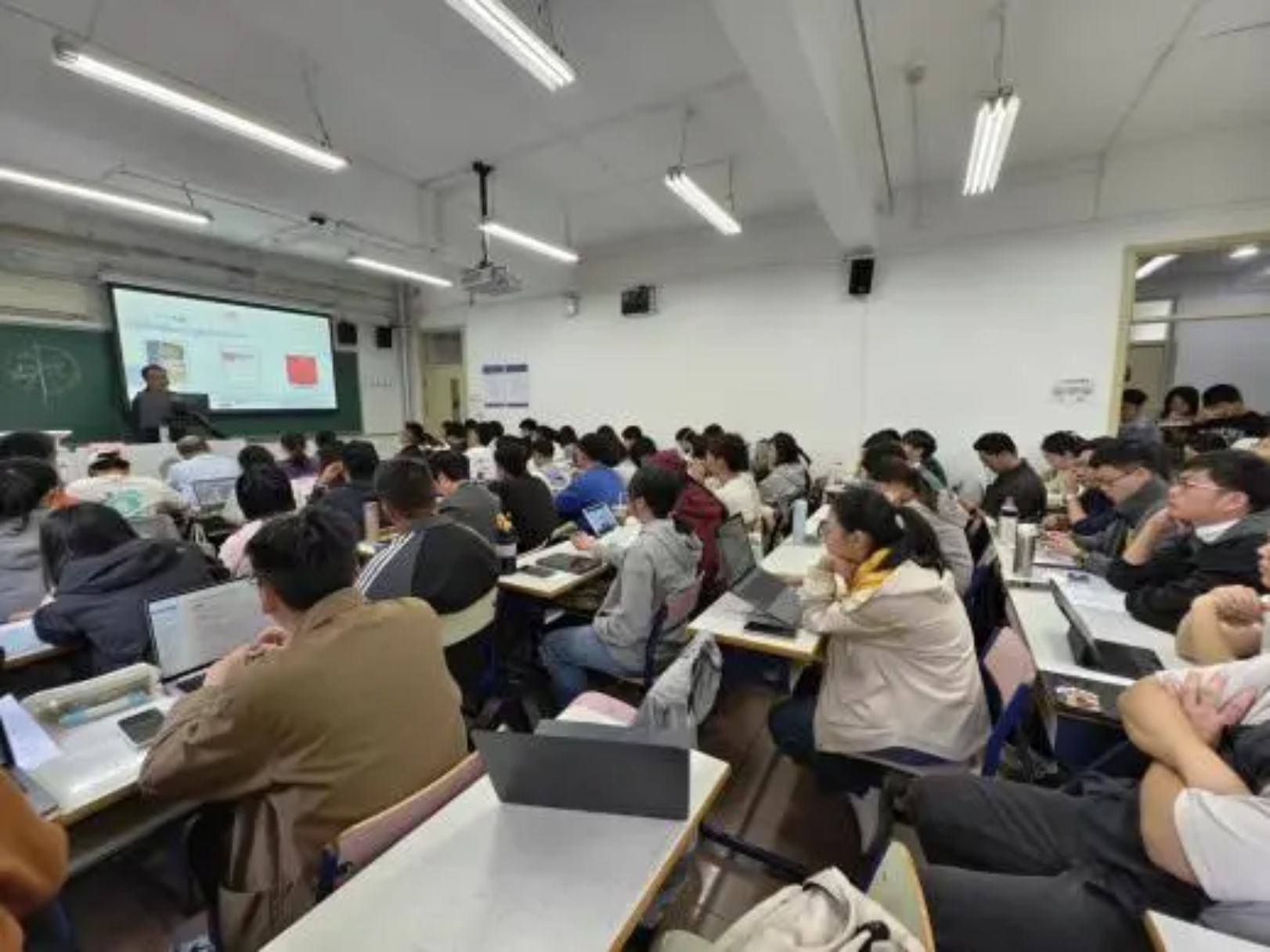
On October 12th, the 38th lecture of the BNU Legal Lecture Series, titled "Research on Juristic Methodology in China: Observation and Reflection," was successfully held in Room 212 of Teaching Building 2 at Beijing Normal University. This lecture was given by Professor Lei Lei, Dean of the Law School of China University of Political Science and Law, a Qian Duansheng Chair Professor, and doctoral supervisor. Professor Liang Yingxiu, Dean of the Law School of Beijing Normal University, presided over the lecture. Associate Professor Wang Xiong and Associate Professor Guo Ye from the Law School of China University of Political Science and Law, as well as Yang Xu, Lecturer from the Law School of Beijing Normal University, served as panelists. Nearly a hundred students attended this lecture.
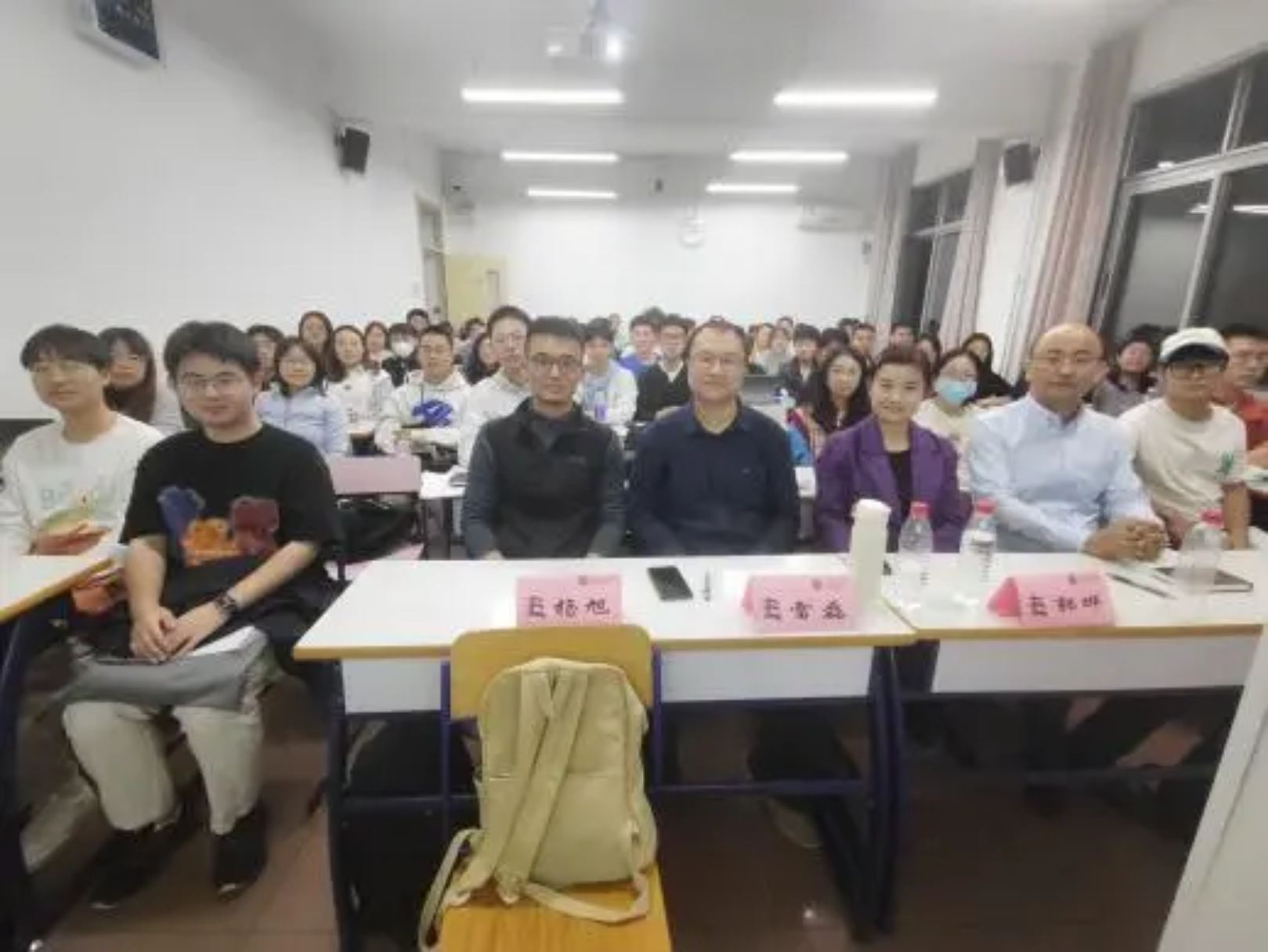
PART 01
At the outset of the lecture, Professor Liang Yingxiu extended a warm welcome to Professor Lei Lei, eloquently outlining his distinguished research accomplishments and his pivotal role in the domain of juristic methodology. Additionally, Professor Liang highlighted the exceptional enthusiasm exhibited by the students in attending the lecture, a testament to the profound impact Professor Lei Lei has in the legal community.
PART 02
In this lecture, Professor Lei Lei centered his discourse on the topic of "Research in Juristic Methodology in China," interweaving phenomenon observation with problem reflection. He provided insightful elucidations on the "two waves of enthusiasm," "eight thematic areas," "three principal characteristics," and "four critical points for contemplation."

To begin with, Professor Lei Lei highlighted that over the past three decades, the study of juristic methodology in the Chinese mainland has witnessed two significant surges of interest. The initial wave, termed the "foundation period," took place during the first decade of the 21st century. This surge was primarily led by legal scholars and focused on rather broad and general themes. The second wave, characterized as the "era of normalization," has unfolded over the past decade. Guided by legal scholars from various departments, research has evolved to be more intentional in its integration with specific substantive laws and judicial practices.
Furthermore, addressing the research topics and scholarly debates associated with these two waves of enthusiasm, Professor Lei Lei has compiled and expounded upon a total of eight key themes. These include: "The Debate Over Disciplinary Concepts: Legal Method versus Legal Methods," "Traditional Methodological Theories: Legal Interpretation and Normative Theory," "Legal Argumentation Theory: Procedures, Rhetoric, and Logic," "The Historical Development of Methodological Theories: From Conceptual Jurisprudence to Evaluative Jurisprudence," "The Debate on Legal Science: Jurisprudence versus Social Science Jurisprudence," "The Controversy Over Legal (Human) Thought: Rule Orientation Versus Consequence Consideration," "The Debate on the Concept of Legal Sources: Manifestation Form and Judgment Basis," and "The Debate on the Nature of 'Same Case, Same Judgment': Moral Imperatives versus Legal Obligations."
Subsequently, Professor Lei Lei emphasized the three major characteristics of the development of juristic methodology research in China. Firstly, it manifests as a shift from legal scholars to departmental legal scholars, with related research becoming more closely related to departmental law, individual cases, and judicial practice; Secondly, there is a trend in posture from "introducer" to "participant", consciously refining and constructing methodological theories based on Chinese practice and experience; Thirdly, the analytical approach in legal reasoning has begun to receive attention, attempting to make more contributions to the precision of legal reasoning and interpretation.
In conclusion, Professor Lei Lei offered four reflective insights into the prevailing challenges within contemporary methodological research. These reflections primarily concerned the refinement and intensification of scholarly inquiry, the broader context of research development, the understanding of the interplay between "Dao" (the way) and "Shu" (the techniques), and the practical implications of research outcomes for judicial departments. He underscored the imperative for methodological research in China to transition from "juristic methodology in China" to a distinctly "Chinese juristic methodology." This entails not only the establishment of a methodological framework genuinely suited to China's judicial realities but also the contribution of a set of methodological solutions that embody Chinese values and possess theoretical universality, thereby offering a global intellectual contribution.
PART 03
In the discussion segment, Associate Professor Wang Xiong commenced by expressing his appreciation to Professor Lei Lei and proceeded to articulate two thoughtful reflections and questions pertaining to the lecture, with a particular focus on the realm of legal doctrine. His first inquiry centered on the translation of "Rechtsdogmatik" into "Legalism." He noted that the term 'doctrinal studies' has its roots in Christian theology, where the doctrines themselves are not subject to criticism or reflection. He asked whether this translation implies that 'law' should similarly be beyond reproach or reflection, suggesting that perhaps 'just doctrinal studies' might be a more fitting translation. His second question addressed the historical origins of jurisprudence in China, pondering whether the tradition of "respecting classics and annotating laws" dating back to the Han Dynasty could be considered a precursor to the development of juristic methodology. These thought-provoking queries stimulated a lively intellectual engagement among the participants.
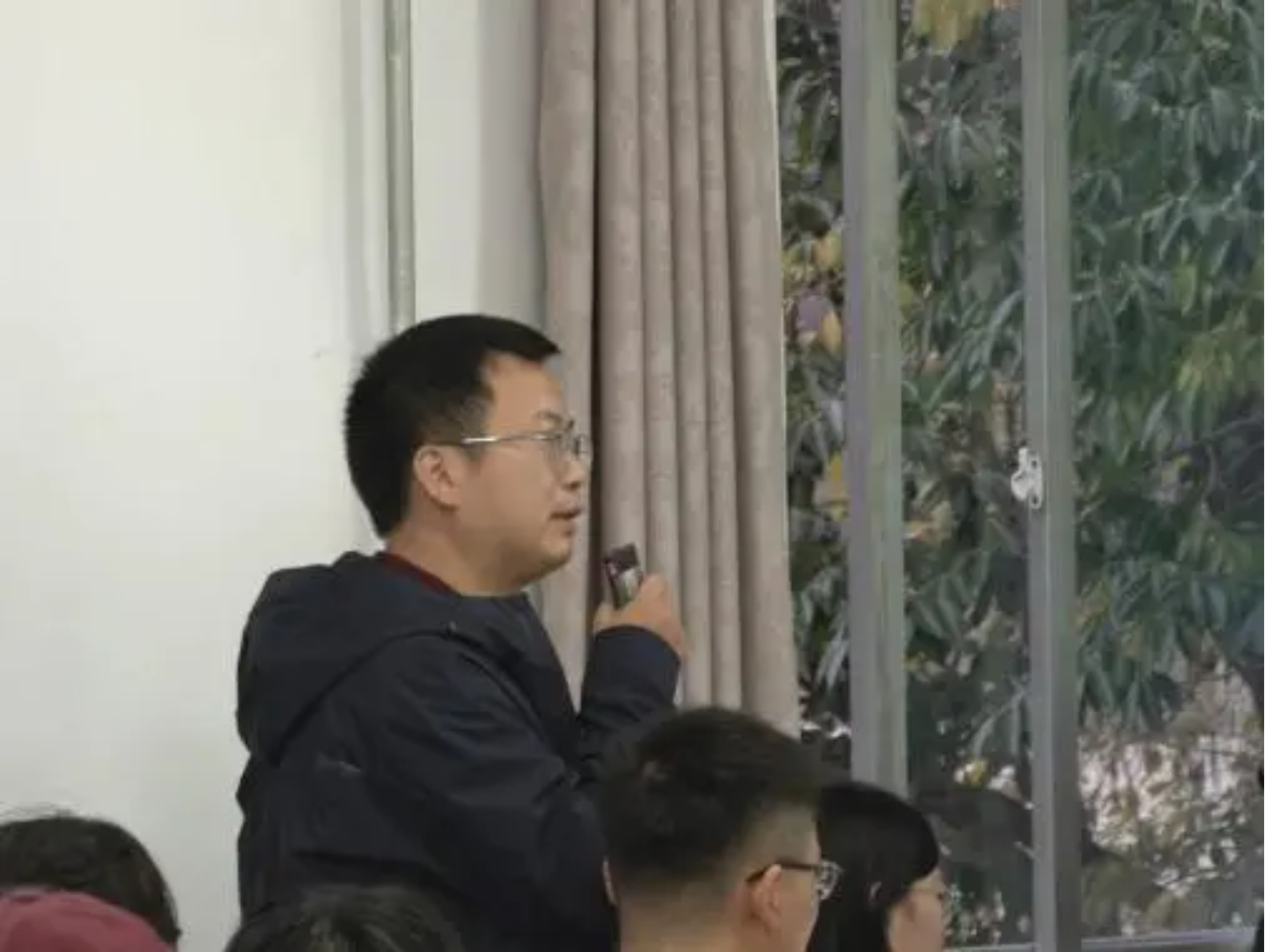
Associate Professor Guo Ye began by extolling Professor Lei Lei's scholarly accomplishments in the field of juristic methodology and reflected on her own journey in this domain. Employing vivid metaphors, she highlighted that the subject of "the juristic methodology in China" is currently epitomized by the "Sinicization of juristic methodology." She argued that the feasibility of this topic is underpinned by the fact that legal methodology can compensate for the deficiencies in traditional Chinese thought patterns and methods, as well as the tendency for macro leaps, thereby meeting the practical demands of legal construction and fostering the emergence of a community of legal professionals. Additionally, drawing from contemporary circumstances and personal insights, she appended two further considerations to the evolution of juristic methodology: first, how should juristic methodology research address the advent of emerging technologies; and second, whether the integration of legal methodology with the study of classic cases and ancient Chinese judicial thought warrants deeper exploration.
Mr. Yang Xu commenced his contribution by encapsulating his impressions of the lecture with the phrases "viewed from a high vantage point" and "a treasure trove of knowledge," sharing his insights based on the three principal characteristics of juristic methodology research in China as outlined by Professor Lei Lei. Regarding the subject matter, Yang Xu recounted his experiences in the study of civil law and juristic methodology, emphasizing the importance of examining methodological and legal issues through the lens of specific legal fields. In terms of scholarly posture, he posited that scholars aspire to contribute universally applicable knowledge and used the example of whether uncertain legal concepts equate to those requiring value judgments to illustrate the potential for uncovering new methodological insights within specialized legal research. Concerning logical reasoning, Yang Xu referenced German scholar Kuren's critique of Radbruch's work on legal types to underscore the critical role of analytical approaches in the foundational and practical aspects of methodological research.
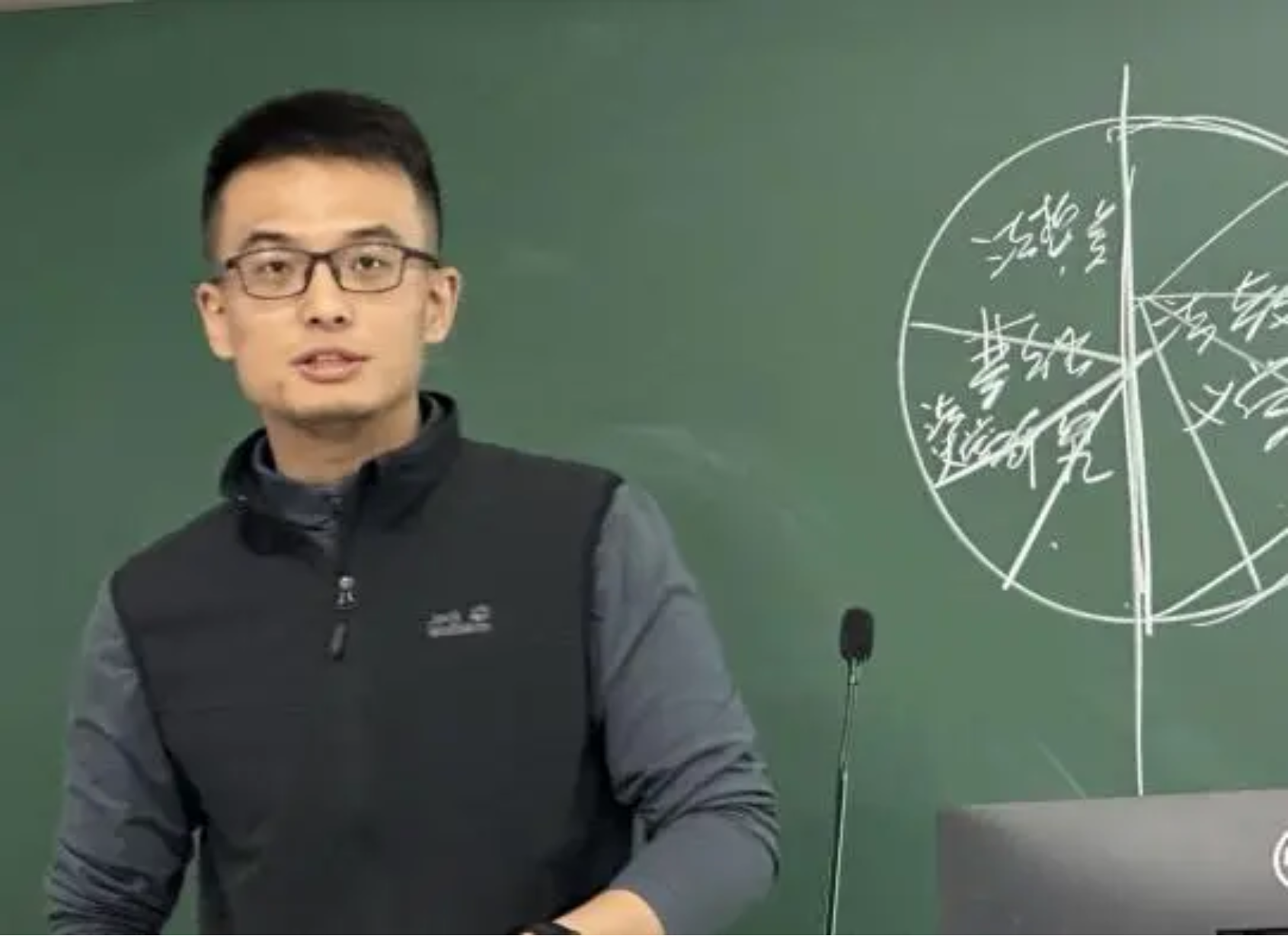
PART 04
In the subsequent Q&A interactive session, students actively sought advice from Professor Lei Lei and received detailed answers and signed gift books.
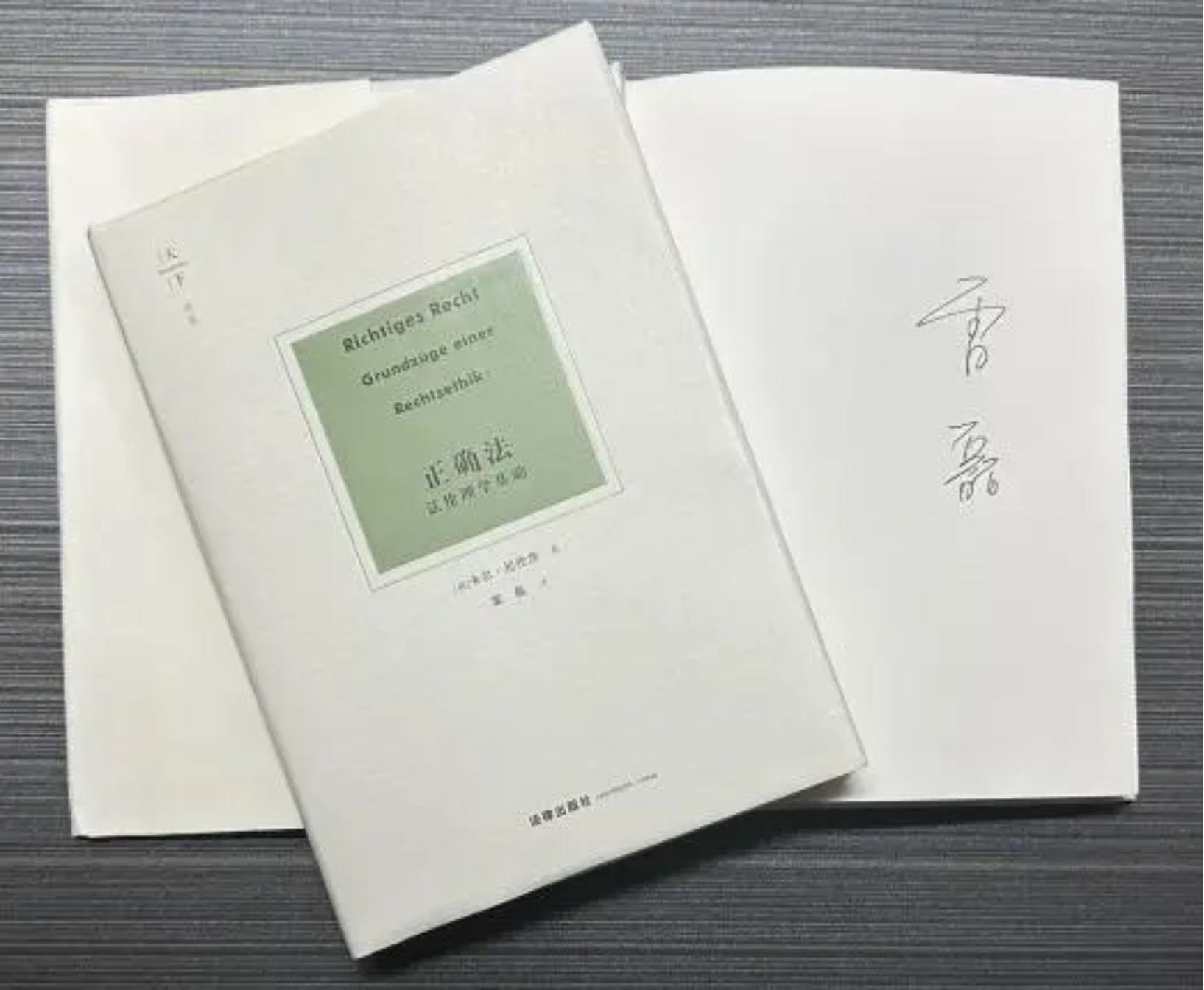
PART 05
After the interaction, Professor Liang Yingxiu summarized and supplemented the speeches of Professor Lei Lei and all the speakers. He reviewed the origins of his research on juristic methodology and, by citing specific examples, revealed that precedents play different roles in judicial practice in different countries based on the different characteristics of legislative bodies in China and other countries. He pointed out that the development of juristic methodology in China needs to adapt to the current social reality. Professor Liang Yingxiu also pointed out that in the context of the development of emerging technologies such as artificial intelligence, China's juristic methodology research needs to be adjusted in a timely manner with the changes of the times and society. At the same time, it should adhere to a practical orientation, be closer to individual cases and judicial practice, and develop towards a more practical direction. At the end of the lecture, Professor Liang Yingxiu once again expressed his deep gratitude to Professor Lei Lei for attending the lecture.
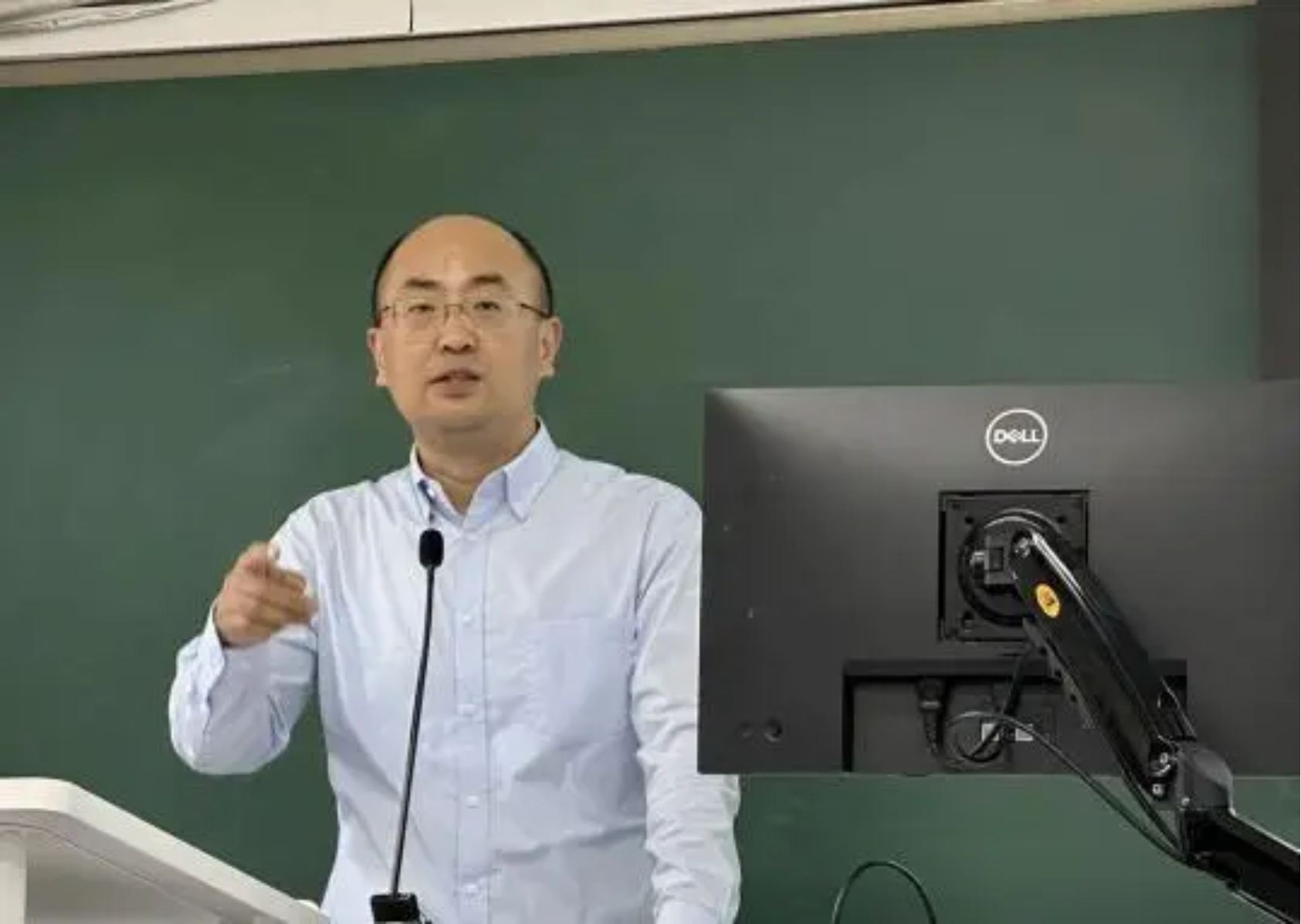
Finally, the lecture came to a successful conclusion amidst the warm applause of the students and teachers!
